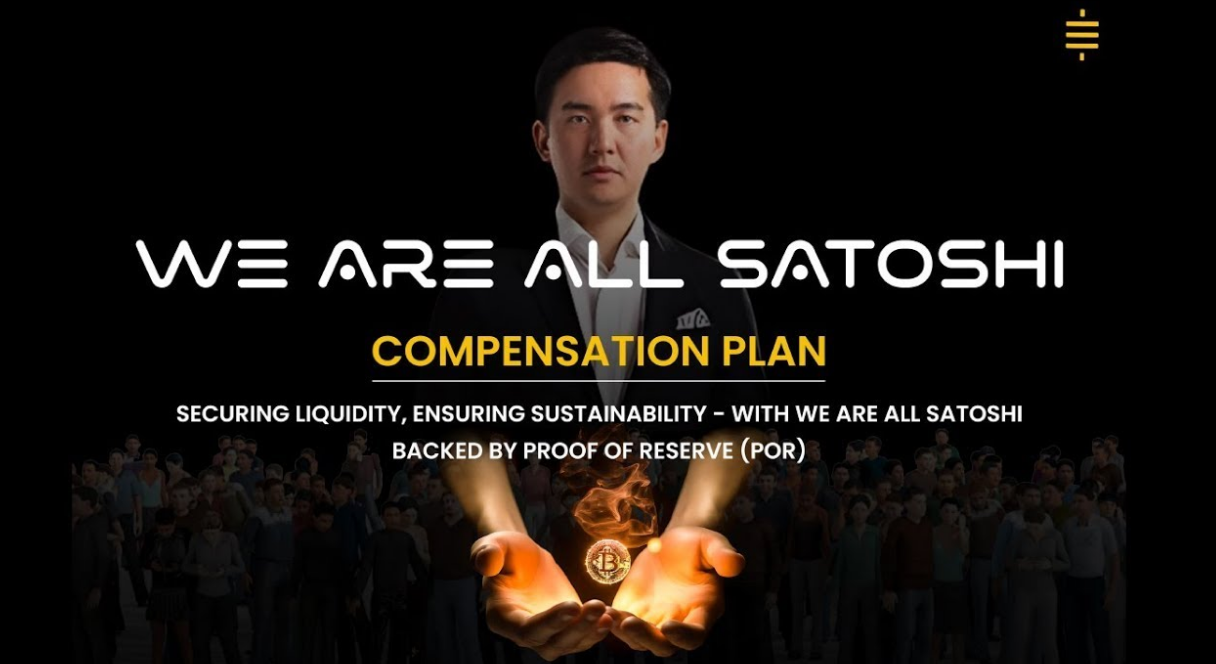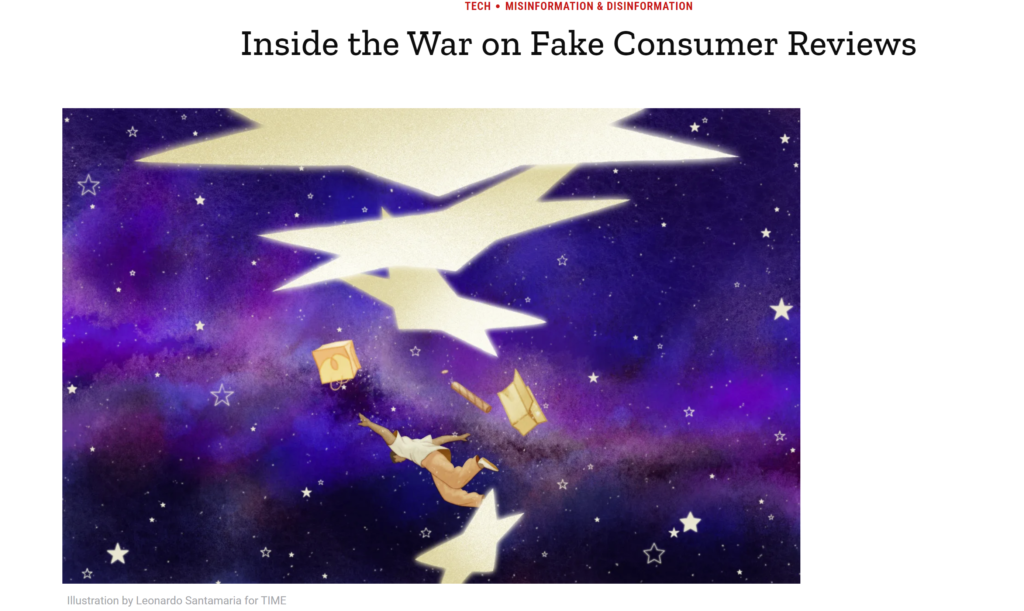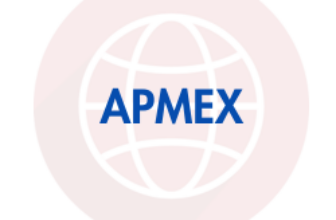We Are All Satoshi has been identified as a risky opportunity by Intelligence Commissioner users. We’ve received over 5 complaints against We Are All Satoshi.
We Are All Satoshi is a cryptocurrency MLM scam run by infamous Ponzi schemer Sam Lee. It operates similarly to a traditional Ponzi scheme, with new investors’ funds used to repay existing ones. The document describes WAAS’s misleading practices, locked investments, and MLM structure, as well as Lee’s history of fraud. Negative customer feedback adds to its skepticism, citing late payments and a lack of transparency.
In the world of cryptocurrency, scams and Ponzi schemes are unfortunately all too common. We Are All Satoshi is one such scheme that has attracted attention for its deceptive practices and false promises. Operating under the guise of an MLM company, We Are All Satoshi claims to offer lucrative investment opportunities in the crypto market. However, upon closer examination, it becomes evident that this company is nothing more than a Ponzi scheme designed to defraud unsuspecting investors.
In this article, we will delve deep into the operations of We Are All Satoshi, exposing its fraudulent practices and shedding light on the key players behind the scheme.
We will also analyze the compensation plan, affiliate ranks, and referral commissions offered by the company.
Furthermore, we will explore the experiences of individuals who have interacted with We Are All Satoshi online. Let us proceed with caution as we uncover the truth about this scam.
The Background of We Are All Satoshi
We Are All Satoshi burst onto the scene in April 2023, with its website domain “wearesatoshi.org” privately registered.
However, a closer look reveals that the mastermind behind this scheme is none other than Sam Lee, a notorious Ponzi schemer with a history of defrauding investors.
Alongside his partner Ryan Xu, Lee has been involved in a string of failed Ponzi schemes, including HyperCash, HyperCapital, HyperFund, and Hyperverse.
After the collapse of these schemes, Lee went into hiding in his Dubai apartment for most of 2022. He resurfaced with a new venture called StableDAO in late 2022, promising victims of his previous scams an 11% monthly return.
StableDAO served as an incubator platform for Lee to launch StableOpinion and VidiLook. While StableOpinion failed to gain traction, VidiLook experienced some success before collapsing on April 21st.
We Are All Satoshi is the latest spinoff from Lee’s StableDAO ventures, marking his third attempt to deceive investors.
With this background in mind, it is clear that We Are All Satoshi is not a trustworthy company but rather a continuation of Lee’s fraudulent activities.
The Modus Operandi of a Ponzi Scheme
To understand how We Are All Satoshi operates, it is crucial to grasp the fundamental principles of a Ponzi scheme.
A Ponzi scheme entices investors with promises of high returns and minimal risk, but instead of investing the funds as claimed, the scheme uses new investors’ money to pay off earlier investors.
This cycle continues until the scheme collapses due to a lack of new investors or an overwhelming number of individuals attempting to withdraw their funds.

We Are All Satoshi follows this classic Ponzi scheme model. The company lures investors to purchase its WAAS tokens, which cost $1 each. It then promises daily returns of 1% or 2% on these investments. Affiliates who recruit two individuals that invest receive 2% per day on all other affiliates, while all other affiliates receive 1% per day.
It is important to note that these returns are only paid until the investor reaches 300% of their initial investment. After this point, reinvestment is required to continue earning.
It is worth mentioning that investments in WAAS tokens are locked for 500 days, regardless of whether the promised 300% return has been paid out. This lock-in period serves to keep investors’ funds inaccessible, further highlighting the deceptive nature of We Are All Satoshi’s practices.
The lack of regulation or the presence of poor regulation is a huge red flag. It means We Are All Satoshi is a scam and most likely, an illegal operation.
Companies offering investment services or opportunities without having a license can vanish without leaving a trace. Furthermore, the lack of a regulatory license allows them to get away with it and face no legal consequences.
That’s why it’s vital for you to always check a company’s regulation status as well as its license information. The presence of a license allows consumers to reach out to an authority if something goes wrong.
In the case of We Are All Satoshi, victims have nowhere to go due to the absence of a watchdog or license.
You should ask yourself the following questions when you come across a new investment firm or opportunity:
- Does the investment provider maintain transparency about its CEO?
- Do they have a license from a renowned regulatory authority?
- If the need arises, can I reach out to an authority to report this company as a scam?
We Are All Satoshi operates within the MLM (Multi-Level Marketing) framework, which rewards affiliates for recruiting new members and building a downline. Let us examine the compensation plan offered by We Are All Satoshi, shedding light on the various ranks and bonuses available to affiliates.
We Are All Satoshi features twelve affiliate ranks within its compensation plan. Each rank has specific qualification criteria that affiliates must meet to progress through the ranks. The ranks, along with their respective qualification criteria, are as follows:
- Affiliate: Sign up as a We Are All Satoshi affiliate and make an investment.
- SHIBA: Generate $100,000 in accumulated investment volume on both sides of the binary team.
- TRON: Generate $250,000 in accumulated investment volume on both sides of the binary team.
- DOGE: Generate $500,000 in accumulated investment volume on both sides of the binary team.
- CARDANO: Generate $750,000 in accumulated investment volume on both sides of the binary team.
- RIPPLE: Generate $1,000,000 in accumulated investment volume on both sides of the binary team.
- MATIC: Generate $2,000,000 in accumulated investment volume on both sides of the binary team.
- POLKADOT: Generate $3,000,000 in accumulated investment volume on both sides of the binary team.
- SOLANA: Generate $4,000,000 in accumulated investment volume on both sides of the binary team.
- BINANCE: Generate $5,000,000 in accumulated investment volume on both sides of the binary team.
- ETHERIUM: Generate $10,000,000 in accumulated investment volume on both sides of the binary team.
- BITCOIN: Generate $20,000,000 in accumulated investment volume on both sides of the binary team.
We Are All Satoshi offers referral commissions to affiliates who bring in new investors. Affiliates earn a 5% commission on WAAS token investments made by their referrals. However, the company denies referral commissions on the first two recruits and starts awarding commissions from the third recruit onwards.
Additionally, We Are All Satoshi employs a binary compensation structure to pay out residual commissions. In this structure, an affiliate is placed at the top of a binary team, which is then divided into two sides (left and right). As the affiliate recruits new members, the binary team grows, with each level containing twice as many positions as the previous level.
At the end of each day, We Are All Satoshi calculates the new investment volume on both sides of the binary team. Affiliates are then paid 10% of the funds matched on both sides of the team. The amount of residual commissions earned varies based on the affiliate rank, with higher ranks receiving more significant payouts.
We Are All Satoshi rewards affiliates for reaching specific ranks with one-time Rank Achievement Bonuses. These bonuses provide additional incentives for affiliates to progress through the ranks and recruit new members. The bonuses for each rank are as follows:
- SHIBA: $1000
- TRON: $2000
- DOGE: $3000
- CARDANO: $4000
- RIPPLE: $5000
- MATIC: $10,000
- POLKADOT: $20,000
- SOLANA: $30,000
- BINANCE: $40,000
- ETHERIUM: $100,000
- BITCOIN: $1,000,000
However, it’s worth noting that many scammers disable their payment channels before shutting down their operations.
They might give you multiple reasons including:
- A technical error
- A glitch in their system
- Banking issues
- A “hacking attack”
And many others.
But in 9/10 cases, the scammers actually stop making payments and keep the money to themselves. Hence, the payment methods we discussed here might not work.
If you want to get your money back from a scammer, you’d need to file a chargeback.
It is essential to consider the experiences and opinions of individuals who have interacted with We Are All Satoshi online. While researching customer feedback and complaints, it becomes apparent that the majority of reviews are negative. Many people have expressed frustration and disappointment with the company, highlighting the lack of transparency, delayed payments, and difficulty in withdrawing funds.
When it comes to scammers, you should only measure the quality of their customer service if they respond to your complaint.
In the beginning, scammers tend to remain very accessible.
This means their representatives will keep calling you until you invest with them. Furthermore, they will act friendly and make it seem as if you’re one of their most valuable consumers.
However, they do all this just to win your trust.
Scammers understand that in order to convince someone to give them a large sum, they will need to seem like a friend.
Nevertheless, when you have invested a considerable amount of money and need to get it back, their customer support will become inaccessible.
All of a sudden, their numbers would either stop responding or become unavailable.
Still, they might remain accessible to convince you to invest further. Also, they might begin by making a few excuses regarding your payment.
However, in the end, the customer support won’t resolve your issues and become increasingly unavailable.
If you have information on a scam or criminal operation, you can get access to 40+ investigative journalists & news outlets for free. Send us a detailed report here and if you qualify, we will forward your case ahead.
Customers have reported difficulties in contacting We Are All Satoshi’s customer support team, with many complaints going unanswered or unresolved. This lack of responsiveness further raises concerns about the company’s legitimacy and its commitment to addressing customer concerns.
It’s worth noting that many scammers tend to purchase fake reviews. Buying fake reviews has become extremely easy and it’s a multi-million dollar industry.
Scammers like We Are All Satoshi tend to purchase fake reviews for their online profiles to make themselves seem more credible.
TIME Magazine investigated the fake review industry and estimated it to be worth more than $150 million. Certainly, there are a ton of scammers who want to seem legitimate and a bunch of fake reviews is the most effective way to do so.
That’s why you shouldn’t trust We Are All Satoshi reviews easily.
It’s easy to identify fake reviews as well. You should look out for 5-star reviews that are posted by temporary accounts (profiles which only posted 1 or 2 reviews on the platform). Also, you should see if the positive reviews share any detailed information about their experience with the firm or not.
In the case of We Are All Satoshi, chances are, you wouldn’t find many legitimate reviews.
Another prominent way scammers like We Are All Satoshi enhance their credibility is by burying negative reviews and complaints under a lot of fake reviews.
This way, when you’ll look up “We Are All Satoshi reviews”, you might not find many complaints. Or, you might find them buried within numerous reviews praising We Are All Satoshi.

You should always look out for consumer complaints. In the case of We Are All Satoshi, the most common complaints I found were about:
- Poor customer support
- Delays in payments
- High fees and charges
- Lack of transparency regarding their leadership team
- Aggressive sales staff
Do you have a similar complaint about We Are All Satoshi? You can share your complaint in the comment section or submit an anonymous tip.
We Are All Satoshi is nothing more than a sophisticated MLM scam designed to deceive and defraud investors. Sam Lee, a notorious Ponzi schemer, is the mastermind behind this scheme, following a pattern of launching fraudulent ventures to exploit unsuspecting individuals. The company’s promises of high returns and minimal risk are simply a facade, hiding the true intention of draining investors’ funds.
The compensation plan offered by We Are All Satoshi is designed to incentivize recruitment, prioritizing the recruitment of new investors over actual product sales or legitimate investment opportunities. The use of WAAS tokens and the promise of daily returns only serve to perpetuate the Ponzi scheme structure, with early investors being paid out using funds from new investors.
Individuals must exercise caution and conduct thorough research before engaging with any investment opportunity or MLM company. We Are All Satoshi serves as a stark reminder of the dangers that exist within the cryptocurrency industry and the importance of due diligence.
We Are All Satoshi is an unregulated entity. Although they might fall under the jurisdiction of a watchdog, they don’t have the license to offer financial services to consumers.
The lack of a license means they are not answerable to any regulatory authority. As a result, the people behind We Are All Satoshi can run away with your money without any prior notice. You should be extremely cautious when dealing with an unregulated service provider.
The absence of a watchdog also means you cannot report to them to anyone.
Also, due to the absence of specific regulations, there is no provision protecting you from the insolvency of this entity. If they go bankrupt, you won’t be able to do anything about it.
Can You Trust We Are All Satoshi?
All the evidence suggests that We Are All Satoshi is a scam. If you have lost money to them, there is still a chance you can get it back.
To recover your funds, you’d need to file a chargeback.





















 Intelligence Commissioner investigates & reviews online money-making opportunities. We strive to provide critically helpful information to our readers and assist them in identifying scams.
Intelligence Commissioner investigates & reviews online money-making opportunities. We strive to provide critically helpful information to our readers and assist them in identifying scams. 